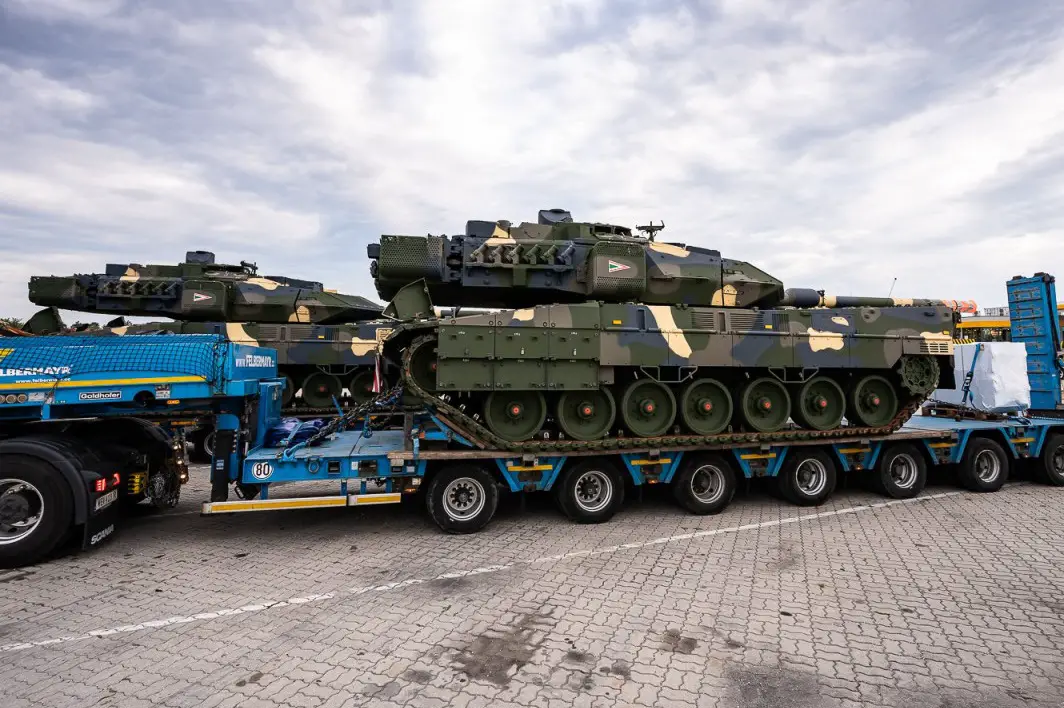The Hungarian Defence Minister Kristóf Szalay-Bobrovniczky said that on Tuesday, 23 July, three of the world’s most modern main battle tanks would arrive in Hungary. With the new vehicles, the tank fleet of the Hungarian Defence Forces’ armoured brigade in Tata expands to 18. By putting the Leopard main battle tanks in service, a new era has begun in the history of the Hungarian armed forces’ development; and their rearmament is going on as planned. In December 2018, Hungary placed an order for 44 Leopard 2A7+s (subvariant 2A7HU) and 12 secondhand 2A4s. The order coincided with the procurement of 24 Panzerhaubitze 2000, and was expected to replace Hungarian Army’s current fleet of T-72 main battle tanks.
The Leopard 2 is a third generation German main battle tank (MBT). Developed by Krauss-Maffei in the 1970s, the tank entered service in 1979 and replaced the earlier Leopard 1 as the main battle tank of the West German army. Various iterations of the Leopard 2 continue to be operated by the armed forces of Germany, as well as 13 other European countries, and several non-European countries, including Canada, Chile, Indonesia, and Singapore. Some operating countries have licensed the Leopard 2 design for local production and domestic development. There are two main development tranches of the Leopard 2. The first encompasses tanks produced up to the Leopard 2A4 standard and are characterised by their vertically faced turret armour.

The Leopard 2A7+ was first shown to the public during the Eurosatory 2010, featuring the label “Developed by KMW – tested and qualified by the German Ministry of Defence”. The Leopard 2A7+ has been tested by the Bundeswehr under the name UrbOp (urban operations). The Leopard 2A7+ is designed to operate both in low-intensity and high-intensity conflicts. The tank’s protection has been increased by modular armour. The frontal protection has been improved with a dual kit on the turret and hull front, while 360° protection against RPGs and mine protection increase the survivability of the tank in urban operations. The modular armour’s system components were first used by Canada in Afghanistan.
The Leopard 2A7+ can fire programmable High Explosive munitions. The turret-mounted MG3 has been replaced with a stabilised FLW 200 remotely controlled weapon station. Mobility, sustainability, and situational awareness have also been improved. The Leopard 2A7s are agile, extremely reliable and have good manoeuvrability in their category. Their hull is 7.7m long and with the gun forward, the length of the tanks is 10.97m. Their width is 3.76m without the add-on armour module and their height is 3.03m. In December 2018, Hungary ordered forty-four 2A7+s (subvariant 2A7HU), making them the second operator of the improved version, after Qatar. The Hungarian Defence Minister recalled that altogether 44 units of this high-tech military equipment would arrive in Hungary by 2028.
















